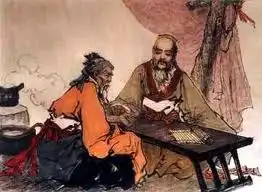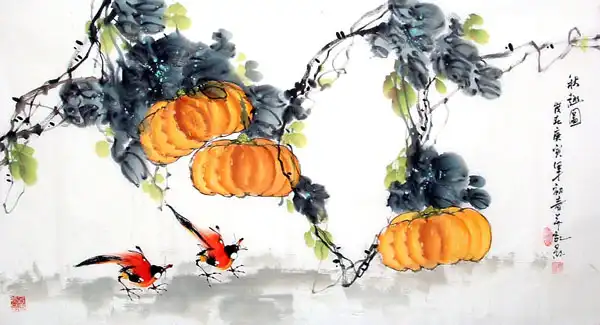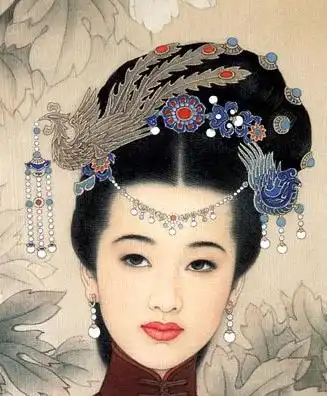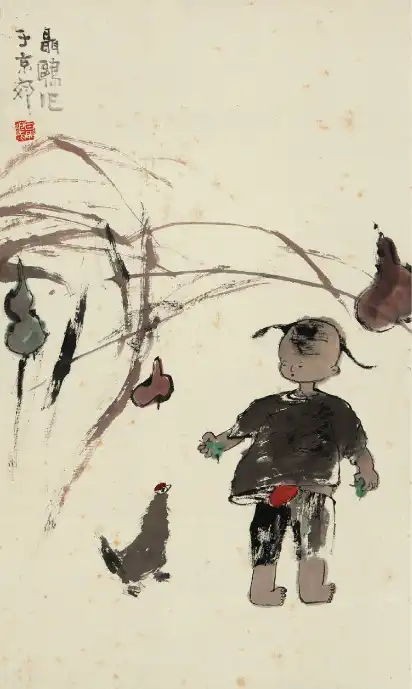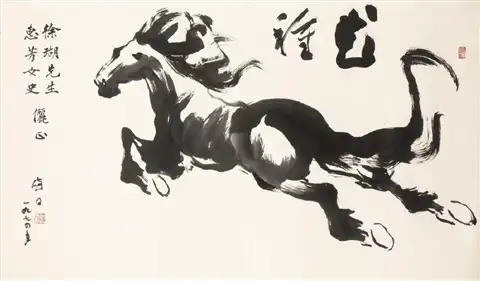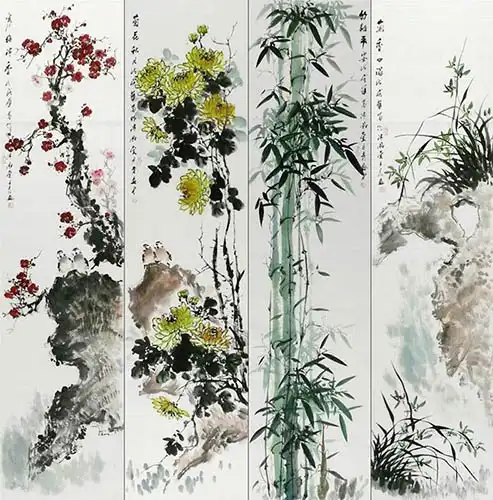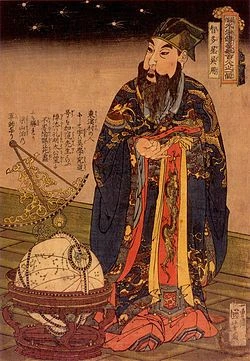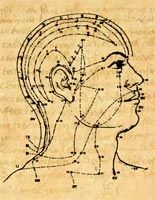Introduction to the disharmony
Major symptoms:
- feeling of heaviness in the body
- bloated abdomen
- loose stool
- lack of appetite
- edema
- swelling
- cloudy head
- cloudy urine
- thick, greasy tongue coating
There are two causes that lead to the generation of “dampness”. The first cause is deficiency of Spleen Qi.
In traditional Chinese medicine the Spleen together with the Lung and the Kidney governs the body's water metabolism. It is in charge of the separation, transportation, and movement of fluids. If the Qi of the Spleen is deficient it cannot sufficiently transport fluids. Eventually this will lead to accumulation of “internal dampness”.
The other cause for generation of "dampness in the Spleen" is living in a damp environment.
Dampness is heavy and turbid in nature. Thus symptoms of "internal dampness" manifest in feeling of heaviness in the body, cloudy head and cloudy urine. As “dampness” is accumulation symptoms of dampness are edema and swelling (1) Other symptoms include bloated abdomen, loose stools and lack of appetite (major symptoms of deficient Spleen).
Dampness is leached out of the body through increasing the urination. Thus substances that treat dampness are usually diuretics.
Major Chinese herbs
Traditional Chinese medicine incorporates minerals in its pharmacology. A mineral used in the treatment of dampness is talcum. Hua Shi - “slippery rock” - absorbs dampness topically, and is used for “damp” skin lesions.
Two seeds used to treat internal dampness are Yi Yi Ren (Coix lachrima jobi) and Dong Gua Ren (Benisaca hispida). Yi Yi Ren known as "seeds of Job’s tears", promotes urination and stops diarrhea. It is also used for increasing joint mobility, for lung or intestinal abscesses and for the treatment of plantar warts. Dong Gua Ren - winter melon seed - promotes the discharge of pus and is beneficial for “damp-heat” vaginal discharge with thick/ unpleasant odor.
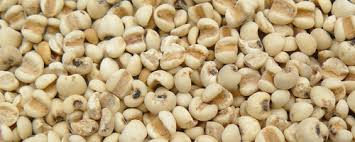
Zhu Ling (Polyporus umbellatus) is a mushroom that enters the Spleen, Kidney, Urinary Bladder channels and treats edema, urinary dysfunction, jaundice, and diarrhea.
Fu Ling (Poria cocos) – china-root – is a famous diuretic in Chinese medicine which is also a Spleen tonic. Another major action of Fu Ling is that it calms the spirit through strengthening the Heart (according to TCM the Heart houses the mind). It is used for symptoms such as heart palpitations, insomnia, and mental restlessness.
Jin Qian Cao (Lysimachia christinae) – is an herb that treats stones in both the urinary and biliary tracts (3)
There is a story about a couple who lived happily in a small village in China. One day the man started complaining of sharp stabbing pain below his ribs and died couple of days later. The woman baffled by his sudden death insisted on having an autopsy. A stone was found in her husband’s gallbladder. The grieving woman put the stone on a string and wore it around her neck for years. One autumn she went to collect some plants in the mountain and she carried them back home. By the time she returned home the stone around her neck had shrunk in half. An herbalist heard about it and discovered that the woman had found herbs that treat stones in the Gallbladder (4)
Yin Chen Hao (Artemisia capillaris) –clears obstruction from the Liver and Gallbladder and is a main herb in the treatment of jaundice (whether it is caused by damp-heat or damp-cold accumulation).
Diuretic herbs that leach out dampness and also promote lactation are - Mu Tong (Akebia trifoliata), Tong Cao (Tetrapanax papyriferus), Dong Kui Zi (Malva verticillata).
Diuretic herbs that leach out dampness and also benefit skin problems due to damp-heat are - Di Fu Zi (Kochia scoparia) – used topically, Bian Xu (Polygonum aviculare) – also expels parasites, Bei Xie (Dioscorea hypoglauca) – for eczema and pustular sores.
Diuretic herbs that leach out dampness and affect the blood are – Qu Mai (Dianthus superbus), Chi Xiao Dou (Phaseolus calcaratus) – breaks blood stasis, Shi Wei (Pyrrosia lingua) – stops bleeding, Ban Bian Lian (Lobelia chinesis) – cools the blood, also used for poisonous snake bite and wasp stings.
Healing Foods

To unlock the rest of this article select "Yes, I want to learn!" below.
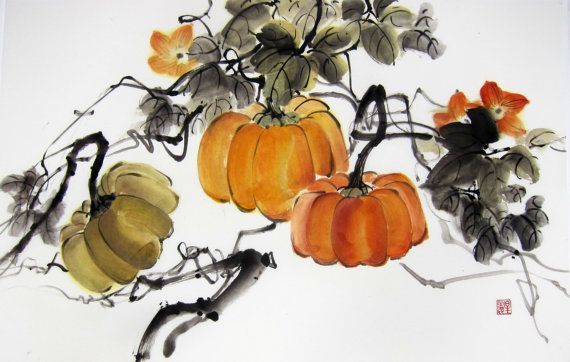
Food therapy is the most economical and non-toxic biochemical approach to health and disease. Food is something we continuously use to sustain our lives. Learning what foods are healing (and what disruptive) for each condition has the potential to convert every meal into a form of therapy.
YS
(1) Maciocia, Giovanni (1989). The Foundations of Chinese Medicine. Nanjing: Harcourt Publishers Limited
(2) Pitchford, Paul (2002). Healing with Whole Foods. Berkeley: North Atlantic Books
(3) Benski, Dan & Gamble, Andrew (1993). Materia Medica, Revised Edition. Seatle: Eastland Press, Incorporated
(4) Lu, Henry (2005). Chinese Natural Cures. New York: Black Dog & Leventhal Publishers, Inc.
(5) Holmes, Peter (1998). The Energetics of Western Herbs. Boulder: Snow Lotus Press, Inc.
Related Articles:
Herbs That Clear Heat and Dry Dampness
Herbs That Dispel Wind-Dampness
How The Climatic Factor Damp Affects Health
Dampness in the Urinary Bladder
Damp-Heat in the Large Intestine
Note: This site and its services are to consumer educational use only. Nothing contained in this site is or should be considered, or used as a substitute for medical advice, diagnosis or treatment. We advise users to always seek the advice of a physician or other qualified professional with any questions regarding personal health and medical condition. Please read our Disclaimer

